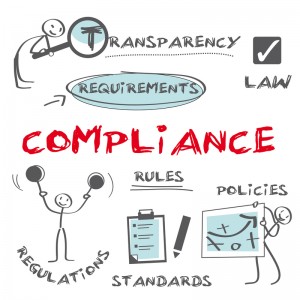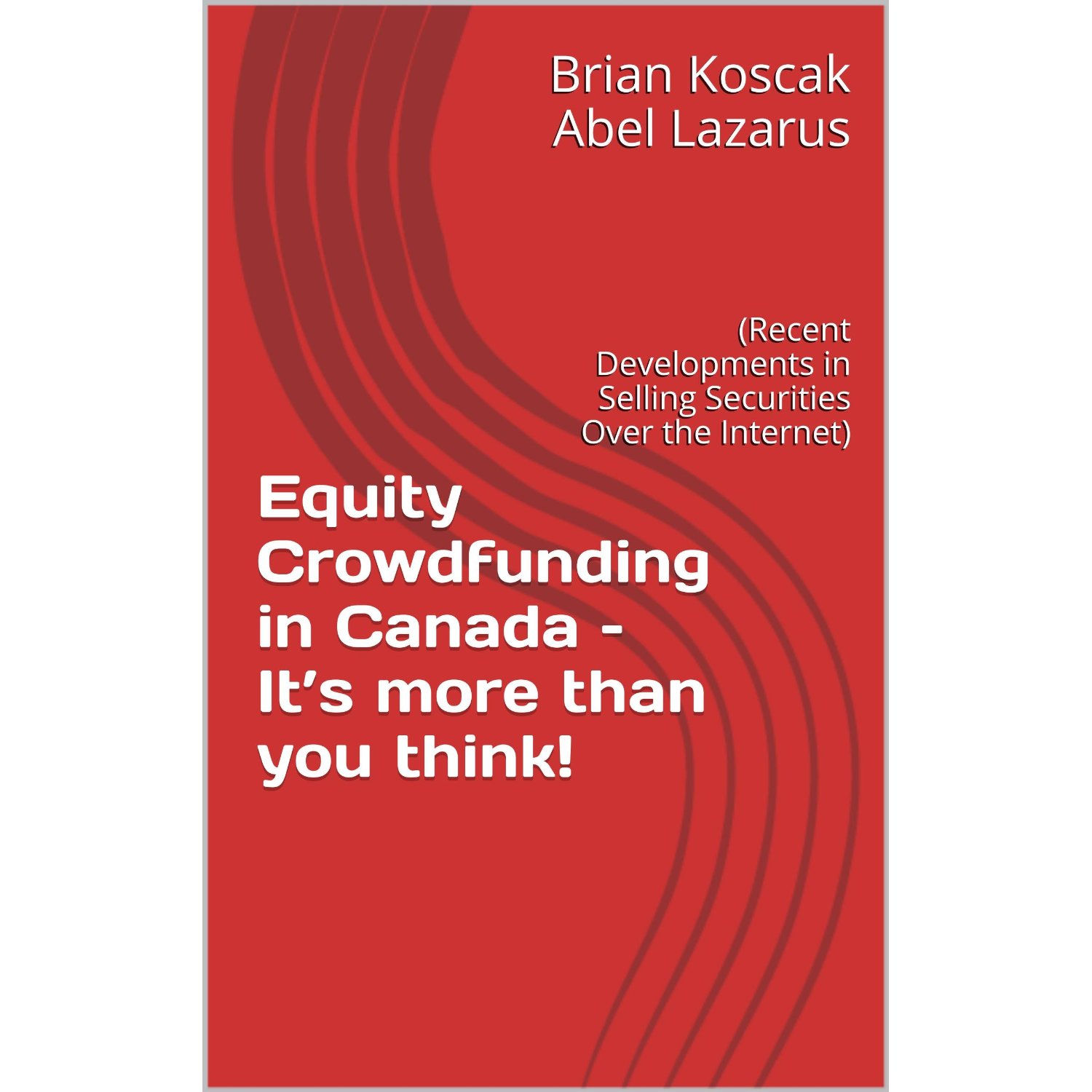 By Brian Koscak and Peter Dunne
By Brian Koscak and Peter Dunne
The Canadian Securities Administrators (the CSA) have proposed amendments to National Instrument 31-103 Registration Requirements, Exemptions and Ongoing Obligations (NI 31-103) that seek, among other things, to clarify the use of the “trade through or to a registered dealer” exemption in section 8.5(a) of NI 31-103 (section 8.5(a)). The effect of this amendment, if adopted, would arguably be to broaden the exemption from the dealer registration requirement since it removes the word ‘solely’ and adds clarifying language. However, it may paradoxically be viewed as narrowing the exemption in light of existing market practices, since we understand some market participants may be reading the existing exemption very broadly.
Background
Registration is triggered under Canadian securities law if someone is “in the business” of trading or advising in securities (commonly referred to as the “business trigger”). Whether someone is in the business or not depends on what they are doing and how often they do it. If they are trading in securities (which includes “acts in furtherance of a trade” (see below)) with regularity and for a business purpose, they can trigger the requirement to be registered. The business trigger is imprecise since it is principles-based which can make it difficult to apply. In other words, there can be circumstances in which it is difficult to say whether the business trigger has been pulled. If the business trigger is not pulled, then a person can perform “an act in furtherance of a trade” without having to be registered.
However, if an individual’s or firm’s activities trigger registration under applicable Canadian securities law, then the individual and/or firm needs to be registered as a dealer or rely on an exemption from the dealer registration requirement. This raises the question, can they rely on the exemption in section 8.5(a).
Existing section 8.5(a)
Currently, section 8.5(a) reads as follows:
“The dealer registration requirement does not apply to a person or company in respect of a trade by the person or company if one of the following applies:
(a) the trade is made solely through an agent who is a registered dealer, if the dealer is registered in a category that permits the trade;” [Emphasis added]
The back-story
In Ontario, existing section 8.5(a) had its origins in former section 35(1)(10) of the Ontario Securities Act (the OSA) going back to the days that pre-dated “universal registration”. When former section 35(1)(10) of the OSA was introduced, universal registration did not exist and neither did the “business trigger’ test for registration. So in Ontario, we needed a registration exemption in order to allow individuals, for example, to call their broker to sell securities without being required to be registered since technically, that sale was a trade. At the time universal registration was introduced in Ontario, registration was more easily triggered in circumstances involving trades, which included any “act in furtherance of a trade”.
However, the previous ‘trade trigger’ was replaced in 2009 with a ‘business trigger’ test for dealer registration, which requires registration if someone is “in the business” of trading in securities. Accordingly, we do not really need existing section 8.5(a) in the circumstances described above since a person calling their broker is not “in the business of trading” and, therefore, does not trigger registration.
The problem
It appears the CSA is concerned that unregistered officers and directors of an issuer and so-called “finders” and referral agents (collectively, unregistered persons) are inappropriately relying on existing section 8.5(a) to continue to engage in registerable selling activities with investors by:
- contacting prospective investors to solicit their interest in an offering;
- undertaking most of the selling activities;
- receiving most of the broker-type compensation for the sale (e.g., 6% commission); and
- ultimately effecting the sale through a registered dealer.
Persons who carry out these activities for a business purpose should be registered. However, it appears that some unregistered persons are using existing section 8.5(a) to continue to engage in registerable selling activities but, as a final step, running the trade though a registered dealer thereby, in their mind, ‘sanitizing’ the trade.
In other words, they are interpreting the requirement to have the trade made ‘solely’ through a registered dealer as being ‘ultimately’ made through a registered dealer. We understand this is not what was contemplated by the CSA and hence the proposed amendments to existing section 8.5(a).
We understand the CSA is of the view that the word ‘solely’ when used in existing section 8.5(a), was intended to be very limiting since it requires the trade (and all “acts in furtherance of the trade” to be made ‘solely’ through the registered dealer. It appears this does not necessarily reflect the practices of certain capital market participants.
So what is an “act in furtherance of a trade”?
“Acts in furtherance of a trade” undertaken by unregistered persons include, but are not limited to, the following:
- distributing offering and marketing materials involving a potential investment;
- preparing and disseminating forms of agreements for signature by investors;
- conducting information sessions with groups of investors; and
- meeting and communicating with individual investors.
On its face, there is nothing wrong if an unregistered person engages in such activities occasionally, so long as they are not done with regularity, for compensation and for a business purpose. If they are, then the person arguably should be registered, or should be engaging in such activities or find an exemption. Consider the following examples:
Example #1 – MiningCo is raising capital and has engaged an exempt market dealer (EMD) to assist. Mr. A is actively involved in the offering process. Mr. A is not in the business of trading securities, so he does not trigger registration. MiningCo does not have to rely on existing section 8.5(a) so it does not matter whether Mr. A is engaging in registerable selling activities which includes contacting investors.
Example #2 – MiningCo is raising capital and has engaged an EMD to assist. Mrs. B is actively involved in the offering process and regularly engages in similar sales activities. Mrs. B needs to rely on a registration exemption because she has pulled the business trigger and thus needs to be registered. Mrs. B arguably cannot rely on existing section 8.5(a). However, proposed changes to existing section 8.5(a) provides an unregistered person, such as Mrs. B who needs to be registered, with some ability to engage in registerable selling activities provided they do not involve directly communicating with investors or potential investors.
The CSA’s proposal
The CSA proposes to amend existing section 8.5(a) by
- removing the “solely” qualifier for trades through a registered dealer, but
- explicitly stating that the registration exemption cannot be relied upon if the person or company seeking to rely on the exemption directly solicits or contacts any purchaser or prospective purchaser in relation to the trade.
(Proposed section 8.5(a))
The CSA has proposed corresponding changes to section 8.5 in the Companion Policy to NI 31-103, which would provide, among other things, that such persons may work with issuers and appropriately registered dealers provided that they do not contact or solicit purchasers.
Commentary
Our comments and concerns about Proposed section 8.5(a) are discussed below.
(a) The business trigger has not changed
Proposed section 8.5(a) would not change the application of the business trigger. It is still necessary to determine, as a first step, whether an individual requires registration. This involves a principles-based analysis that depends on the facts. However, if an unregistered person does (or may) require registration, then Proposed section 8.5(a) provides an important limited exemption.
If an unregistered person does engage in registerable activities, they may do so provided that the sale is made through a registered dealer and they do not contact or solicit investors directly.
(b) Addresses concern that unregistered persons are engaging in ‘client-facing’ activities
Proposed section 8.5(a) clearly prohibits unregistered persons from engaging in ‘client-facing’ activities. However, it does not necessarily preclude an unregistered person from engaging in ‘dealer-facing’ activities, which arguably are not permitted under existing section 8.5(a) since the trade must be made ‘solely’ through a registered dealer. To this extent, some may view Proposed section 8.5(a) as ‘loosening’ existing section 8.5(a) by at least permitting a role for unregistered persons that does not involve the direct contact or solicitation of investors.
It may also create greater scope for unregistered persons to act as, and receive compensation for, so called finder or referral agent activities, provided they do not themselves contact investors.
(c) Need for CSA guidance on what unregistered persons who trigger registration trigger can do when relying on Proposed section 8.5(a)
We believe the CSA should provide additional guidance in the Companion Policy to NI 31-103 of what unregistered persons who trigger registration can do whey relying on Proposed section 8.5(a). Although we are not suggesting that this is common practice for unregistered persons who trigger registration to engage in registerable activities, we believe additional CSA guidance should be provided for unregistered persons who may be in such circumstances.
For example, although an officer or director who regularly participates in selling activities could be considered to have triggered registration, in our view, such individuals should be able to engage in incidental “acts in furtherance of a trade” in the normal course of their duties while relying on Proposed section 8.5(a). Consider the following,
- Family and friend and close business associates – A brokered private placement that involves contacting and soliciting family members and close personal friends and business associates can be important sources of capital for an issuer. Officers and directors of issuers would typically be closely involved in communicating with these individuals. If the relevant individuals have pulled the business trigger, issuers would now need to coordinate communications through a registered dealer. This could lead to a reduction in the amount of capital that is raised through these channels. The same could be said when it comes to soliciting individual’s on a ‘President’s List’ of potential investors.
- Soliciting strategic investors – Many issuers have strategic investors who have been granted some form of participation right on future financings. If the relevant individuals at the issuer have pulled the business trigger, in a brokered private placement, communications with such investors could be required to be made exclusively through a registered dealer. Therefore, issuers could have to turn over part of their relationship with the strategic investor to a registered dealer and must accept that compliance with the issuer’s contractual obligations to the strategic investor is in the hands of the registered dealer.
- Distributions to existing securityholders – The proposed restricted rights offering prospectus exemption for distributions to current securityholders (i.e., Multilateral CSA Notice 45-312 – Proposed Prospectus Exemption for Distributions to Existing Security Holders) may have to be run in its entirety through a registered dealer if the relevant individual officers or directors have pulled the business trigger.
- Road shows – Lastly, it is not unusual for officers and other representatives of an issuer from participating in road shows along with its registered dealer to raise capital from investors. A “road show” under Canadian securities law, in the context of a public offering of securities, means “a presentation to potential investors regarding a distribution under prospectus conducted by one or more investment dealers on behalf of an issuer in which one more executive officers or other representatives of the issuer participate.” [Emphasis added] Although road shows for public offerings, by definition, permit and involve officers and other representatives of the issuer participating in an investor presentation, Proposed section 8.5(a), on its face, prohibits such participation for private placements for persons who have pulled the business trigger.
|
Conclusion
In conclusion, we believe Proposed section 8.5(a) represents an important clarifying change for capital market participants; however, it arguably has cast too wide a net by unduly prohibiting incidental trading activities of officers and directors of an issuer who have triggered registration in connection with their capital raising activities.
The comment period for Proposed section 8.5(a) and other amendments to NI 31-103 ended on March 5, 2014.
We encourage readers to leave comments on this blog and we would be pleased to respond.
* * *
Disclaimer
This blog is not intended to create, and does not create an attorney-client relationship. You should not act or rely on information on this blog post without first seeking the advice of a lawyer. This material is intended for general information purposes only and does not constitute legal advice. For legal issues that arise, the reader should consult legal counsel.
 Brian Koscak is a Partner at Cassels Brock & Blackwell LLP located in Toronto, Ontario and Chair of the Private Capital Markets Association of Canada (formerly the Exempt Market Dealers Association of Canada. Brian is also a member of the Ontario Securities Commission’s Exempt Market Advisory Committee and Co-Chair of the Equity Crowdfunding Alliance of Canada. Brian can be reached by phone at 416-860-2955, by e-mail at bkoscak@casselsbrock.com or on twitter @briankoscak. Brian also regularly writes about Canadian securities law matters on his personal blog at www.briankoscak.com.
Brian Koscak is a Partner at Cassels Brock & Blackwell LLP located in Toronto, Ontario and Chair of the Private Capital Markets Association of Canada (formerly the Exempt Market Dealers Association of Canada. Brian is also a member of the Ontario Securities Commission’s Exempt Market Advisory Committee and Co-Chair of the Equity Crowdfunding Alliance of Canada. Brian can be reached by phone at 416-860-2955, by e-mail at bkoscak@casselsbrock.com or on twitter @briankoscak. Brian also regularly writes about Canadian securities law matters on his personal blog at www.briankoscak.com.
 Peter Dunne is a Partner at Cassels Brock & Blackwell LLP located in Toronto, Ontario and Head of Registration and Compliance which forms part of the Securities Law Group. Peter can be reached by phone at 416-869-5342 or by e-mail at pdunne@casselsbrock.com.
Peter Dunne is a Partner at Cassels Brock & Blackwell LLP located in Toronto, Ontario and Head of Registration and Compliance which forms part of the Securities Law Group. Peter can be reached by phone at 416-869-5342 or by e-mail at pdunne@casselsbrock.com.





Speak Your Mind
You must be logged in to post a comment.